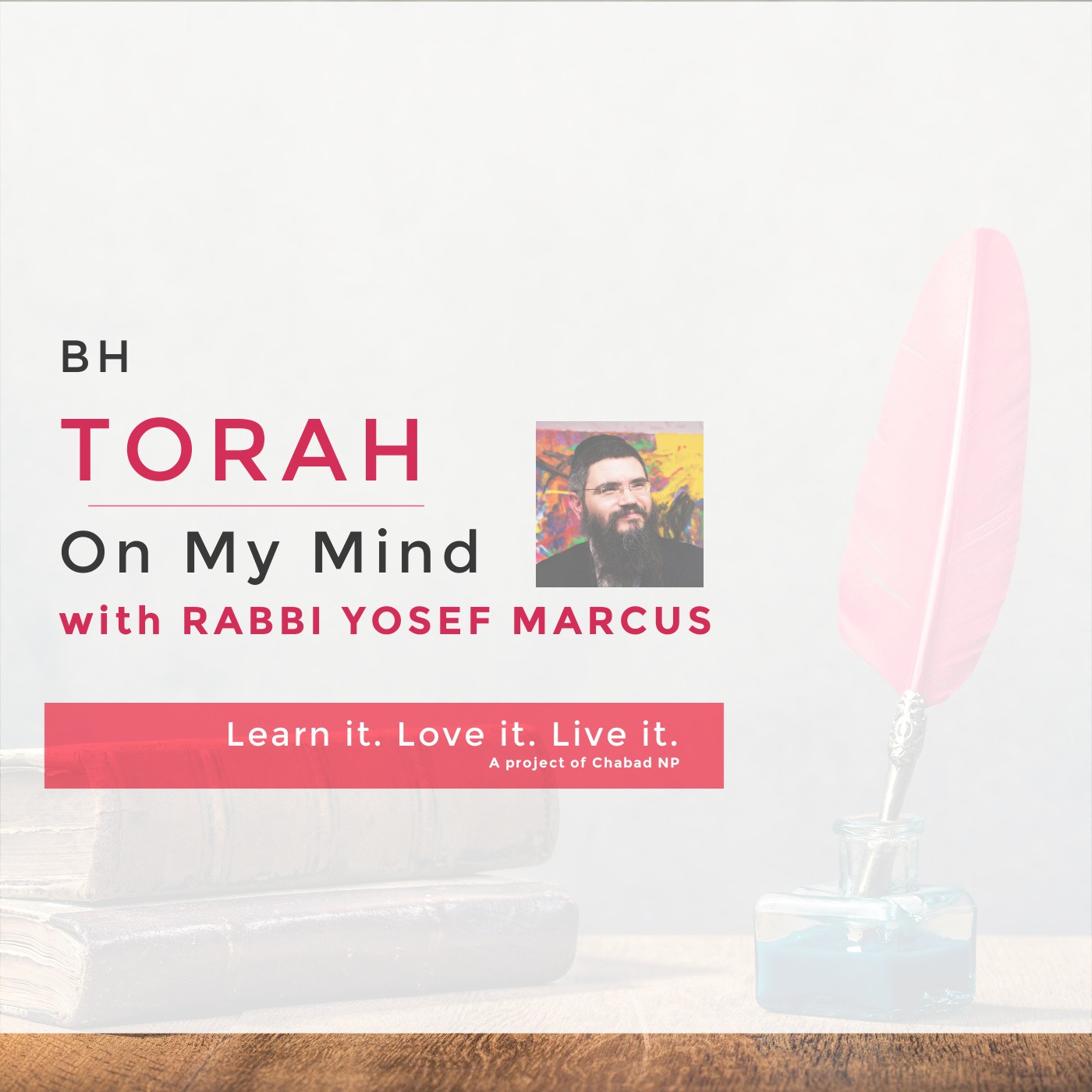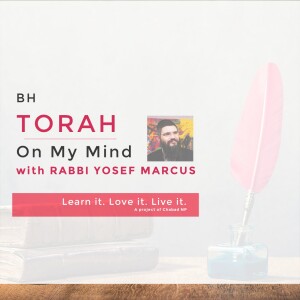
7.2K
Downloads
121
Episodes
A live class on various topics in Torah, exploring the rich wisdom of Judaism, from biblical stories to Talmud, from Maimonides to Chasidic thought. Class is given by Rabbi Yosef Marcus, director of Chabad NP and editor of the Kehot editions of the Pirkei Avot, Haggadah, Psalms, and Megillat Esther. Visit www.chabadnp.com for more info and to support the class. For questions or comments, email rabbi@chabadnp.com.
A live class on various topics in Torah, exploring the rich wisdom of Judaism, from biblical stories to Talmud, from Maimonides to Chasidic thought. Class is given by Rabbi Yosef Marcus, director of Chabad NP and editor of the Kehot editions of the Pirkei Avot, Haggadah, Psalms, and Megillat Esther. Visit www.chabadnp.com for more info and to support the class. For questions or comments, email rabbi@chabadnp.com.
Episodes

Wednesday Jun 16, 2021
Chukat Part 4: Can You Pivot Like Moses?
Wednesday Jun 16, 2021
Wednesday Jun 16, 2021
Fresh off the big news that he won't be going into Israel, Moses gets right back to work, for the very people that caused him to lose his chance to go into Israel. Being able to pivot immediately instead of lingering in the expired situation is the mark of the truly great. Moses reaches out to Edom and asks for permission to pass through their land on the way to Israel. Edom, being Edom, says no with a capital N.

Tuesday Jun 15, 2021
Chukat Part 3: Losing Your Temper will Cost You
Tuesday Jun 15, 2021
Tuesday Jun 15, 2021
Miriam passes away; the well dries up; Israelites complain; Moses rebukes and hits the rock. Lessons in staying calm under fire and the high standards that the saintly are held to.

Monday Jun 14, 2021
Chukat Part 2: Parallels Between Red Heifer and Golden Calf
Monday Jun 14, 2021
Monday Jun 14, 2021
The Torah reiterates the mysterious law by which the one handling the purifying waters becomes impure and Rashi offers the homiletic interpretations of Rabbi Moshe HaDarshan about various aspects of the red heifer.

Sunday Jun 13, 2021
Chukat Part 1: The Quintessential Counterintuitive Law
Sunday Jun 13, 2021
Sunday Jun 13, 2021
Known as the Chok of all Chukim, the rationale for the laws of the Red Heifer escaped even King Solomon. We'll dive into these laws and see how the Chassidic masters applied them in how to overcome the "inner death" of lethargy and numbness.

Friday Jun 11, 2021
Korach Part 6: Aaron and Korach are Polar Opposites
Friday Jun 11, 2021
Friday Jun 11, 2021
It's human nature to be jealous, and Korach takes it to an extreme. But Aaron is not just "not jealous" -- he rejoices in Moshe's appointment as leader. This is also the connection to the kehunah being called a "covenant of salt." Why salt?

Wednesday Jun 09, 2021
Korach Part 4: Aaaron's Run-in with the Angel of Death
Wednesday Jun 09, 2021
Wednesday Jun 09, 2021
Without a prayer, Moses asks Aaron to stop a plague by offering incense. It works. G-d commands Moses to have each tribe present a staff and Aaron's staff miraculously blossoms and produces almonds. Why almonds?

Tuesday Jun 08, 2021
Korach Part 3: Drastic Measures
Tuesday Jun 08, 2021
Tuesday Jun 08, 2021
Moshe makes one last attempt to sway Dathan and Aviram; the earth swallows Korach and his cohorts; the pans of the 250 incense offerers are used to coat the Copper Altar.

Monday Jun 07, 2021
Korach Part 2: Moshe's Accountant Makes a Surprise Appearance
Monday Jun 07, 2021
Monday Jun 07, 2021
Dathan and Aviram dig in their heels, even ready to be blinded (or: claiming they cannot be "blinded," i.e., fooled). Moshe says he's never taken even one donkey from the Israelitesand asks G-d not to turn to the offering (which offering? two interpretations) of the rebels.

Sunday Jun 06, 2021
Korach Part 1: Korach Questions Aaron's Appointment
Sunday Jun 06, 2021
Sunday Jun 06, 2021
Korach -- egotistical populist driven by jealousy, or spiritual yearner seeking closeness to Hashem? Both?

Friday Jun 04, 2021
Shlach Part 6: Why women are exempt from Tzitzit
Friday Jun 04, 2021
Friday Jun 04, 2021
Why does the Parsha wrap up with the laws of Tzitzit? And why therefore are women exempt therefrom? Techincally, women are exempt from all time-related mitzvot -- and Tzitzit are only obligatory at night. But...we propose that the parsha ends with Tzitzit since it is the answer to the spies' fears, since wearing Tzitzit will remind you of your mission and you won't be "consumed by the land." Yet the women were never frightened by the words of the spies in the first place and therefore merited to enter the Land. Only the men were told they would have to die in the desert. So...it follows that women are exempt from Tzitzit. See also Kli Yakar on the first verse of the parsha regarding what would have happened in the spies were women instead of men.
